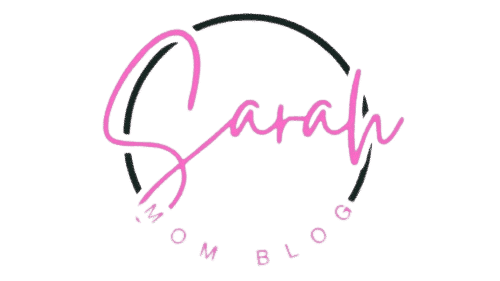Unlock Your Best Self: A Strategic Guide on How to Evaluate Your Life in 2025
Feeling adrift or simply curious about your current trajectory? In the rapidly evolving landscape of 2025, knowing how to evaluate your life isn’t just a reflective exercise—it’s a crucial strategy for personal growth and fulfillment. This guide will provide actionable steps to assess where you are and steer yourself towards a more intentional future.
Why Regular Life Evaluation is Crucial in 2025
The world doesn’t stand still, and neither should your personal development plans. Regularly taking stock of your life is essential because it helps you:
- Gain Clarity: Understand what’s truly important to you versus what’s become a routine.
- Align Actions with Values: Ensure your daily efforts contribute to your long-term vision and core values.
- Identify Areas for Growth: Pinpoint aspects of your life that aren’t meeting your expectations or require change.
- Adapt to Change: Proactively adjust to new circumstances, whether in your career, relationships, or personal goals.
- Increase Self-Awareness: Deepen your understanding of your strengths, weaknesses, desires, and triggers.
The an accelerating pace of technological advancements and shifting societal norms in 2025 make understanding how to evaluate your life more pertinent than ever for maintaining well-being and achieving your goals.
Key Areas to Focus On When You Evaluate Your Life
A comprehensive life evaluation touches upon various interconnected domains. Consider these key areas when you start to evaluate your life:
1. Career and Professional Growth
Are you engaged and satisfied with your current professional path? Ask yourself: Does my work align with my skills and interests? Am I learning and developing? Are my career goals clear, and am I making progress towards them? This is a vital part of learning how to evaluate your life.
2. Personal Relationships
The quality of your connections significantly impacts your happiness. Reflect on your relationships with family, friends, and romantic partners. Are these relationships supportive and fulfilling? Are you investing enough time and energy in nurturing them? How can you improve communication and connection?
3. Health and Wellbeing
This encompasses your physical, mental, and emotional health. Are you prioritizing exercise, nutrition, and adequate sleep? How are you managing stress? Are you attending to your mental and emotional needs? A healthy foundation is key when you evaluate your life.
4. Personal Development and Learning
Life-long learning fuels growth and adaptability. Are you challenging yourself intellectually? Are you pursuing hobbies or learning new skills that bring you joy or could benefit your future? What steps can you take to foster continuous self-improvement?
5. Financial Wellbeing
Understanding and managing your finances is crucial for stability and achieving future goals. Are you comfortable with your financial situation? Do you have clear financial goals (e.g., saving, investing, debt reduction)? Are your spending habits aligned with these goals? Financial health is a cornerstone of successfully learning how to evaluate your life.
6. Contribution and Purpose
Feeling a sense of purpose or contribution can significantly enhance life satisfaction. Are you engaged in activities that feel meaningful? Do you feel like you’re making a positive impact, however small? Does your life align with your core values?
Practical Steps: How to Evaluate Your Life Effectively
Knowing what to evaluate is one thing; knowing how to evaluate your life effectively is another. Here’s a practical approach:
Step 1: Schedule Dedicated Time
Treat this as an important appointment with yourself. Block out a few hours in a quiet space where you won’t be interrupted. This isn’t a task to rush; give yourself the gift of focused reflection.
Step 2: Ask Yourself Powerful Questions
The right questions can unlock profound insights. Consider these prompts:
- What am I most proud of achieving or experiencing in the past year?
- What aspects of my life currently bring me the most joy and energy?
- What situations or patterns drain my energy or cause dissatisfaction?
- If I wasn’t afraid of failure or judgment, what changes would I make?
- Are my daily actions truly aligned with my most important long-term goals?
- What am I currently tolerating that I shouldn’t be?
- In an ideal world, what would a typical day look like for me one year from now?
Step 3: Utilize Journaling and Reflection Tools
Writing down your thoughts can bring clarity. Consider using a journal, creating a mind map, or even using a ‘Wheel of Life’ diagram to visually assess different areas. The act of externalizing your thoughts helps in processing them when you evaluate your life.
Step 4: Seek Constructive Feedback (Optional)
Sometimes, an outside perspective can be invaluable. Consider discussing your reflections with a trusted friend, mentor, or a professional coach. They might offer insights or ask questions you hadn’t considered. Ensure it’s someone who will be supportive yet honest.
Step 5: Set SMART Goals Based on Your Evaluation
An evaluation is most powerful when it leads to action. Based on your insights, set Specific, Measurable, Achievable, Relevant, and Time-bound goals for the areas you want to improve or change. This is a critical step in effectively understanding how to evaluate your life and make positive changes.
Navigating Your Path Forward: The Ongoing Journey of Life Evaluation
Learning how to evaluate your life is not a one-time event but an ongoing practice. The insights you gain are your compass, helping you navigate towards a more fulfilling and purposeful existence. By regularly pausing to reflect and adjust, you empower yourself to live more consciously and create a life that truly resonates with who you are and who you aspire to be in 2025 and beyond.
Why not start today? Take 30 minutes this week to reflect on one key area of your life using the questions above. You might be surprised by what you discover.


